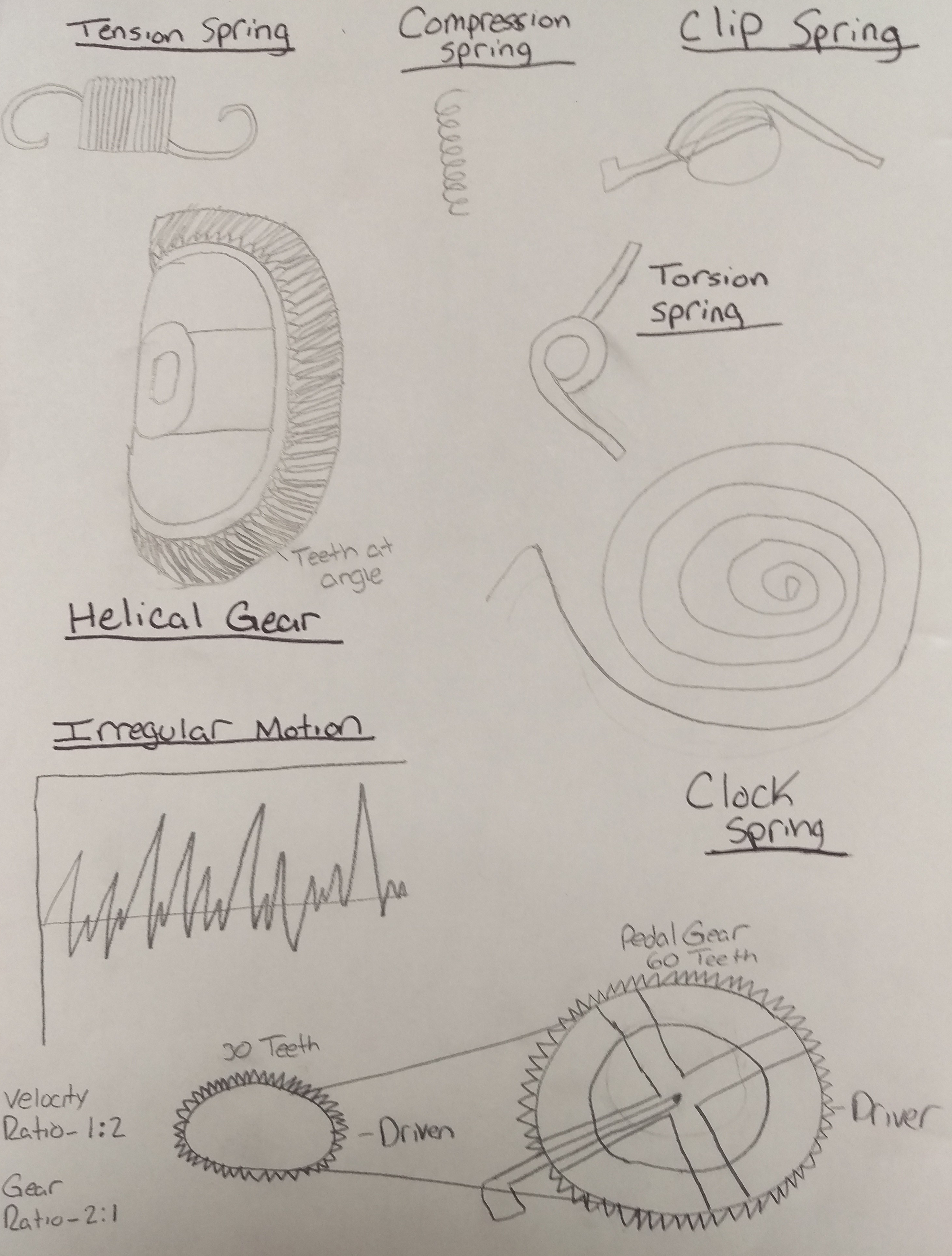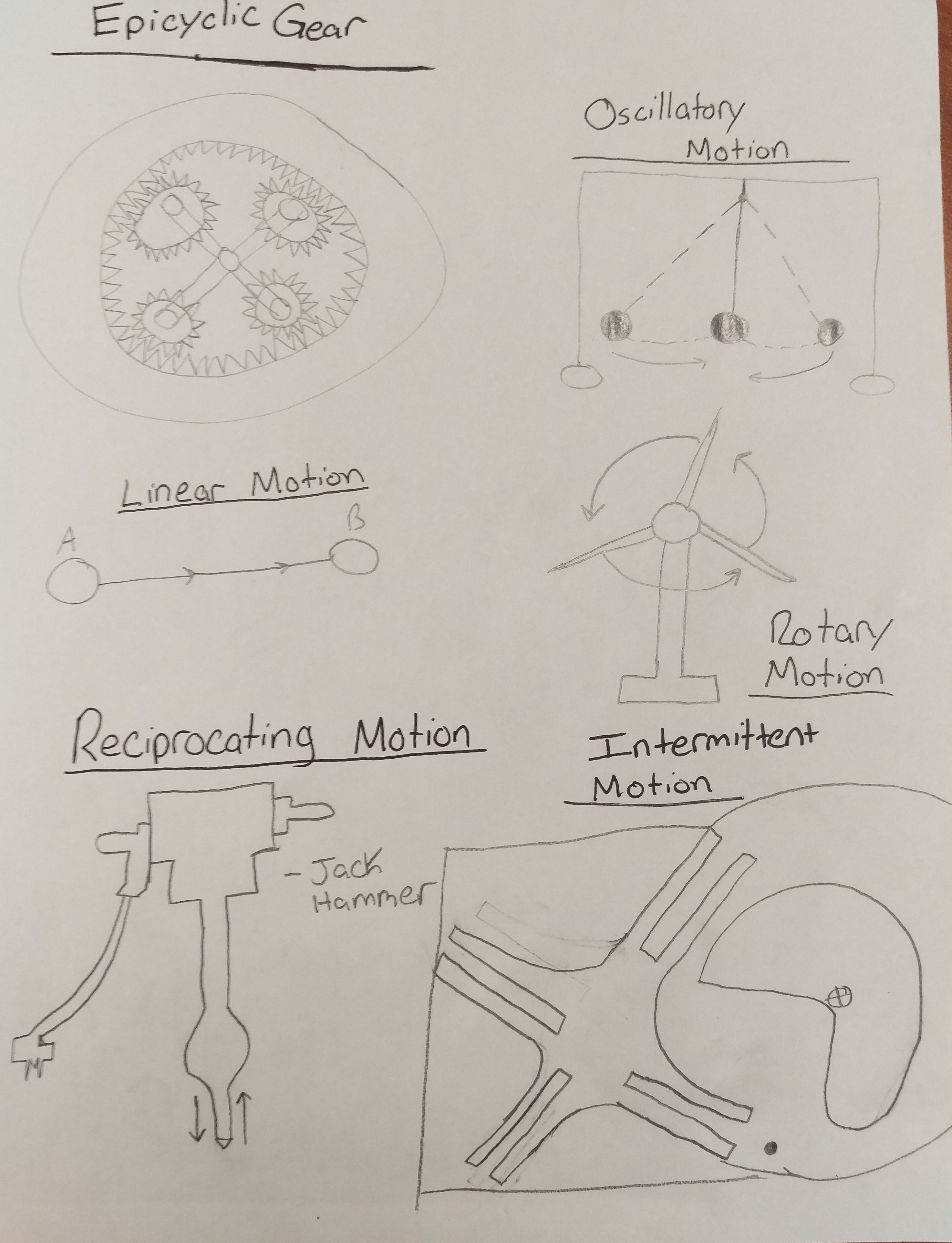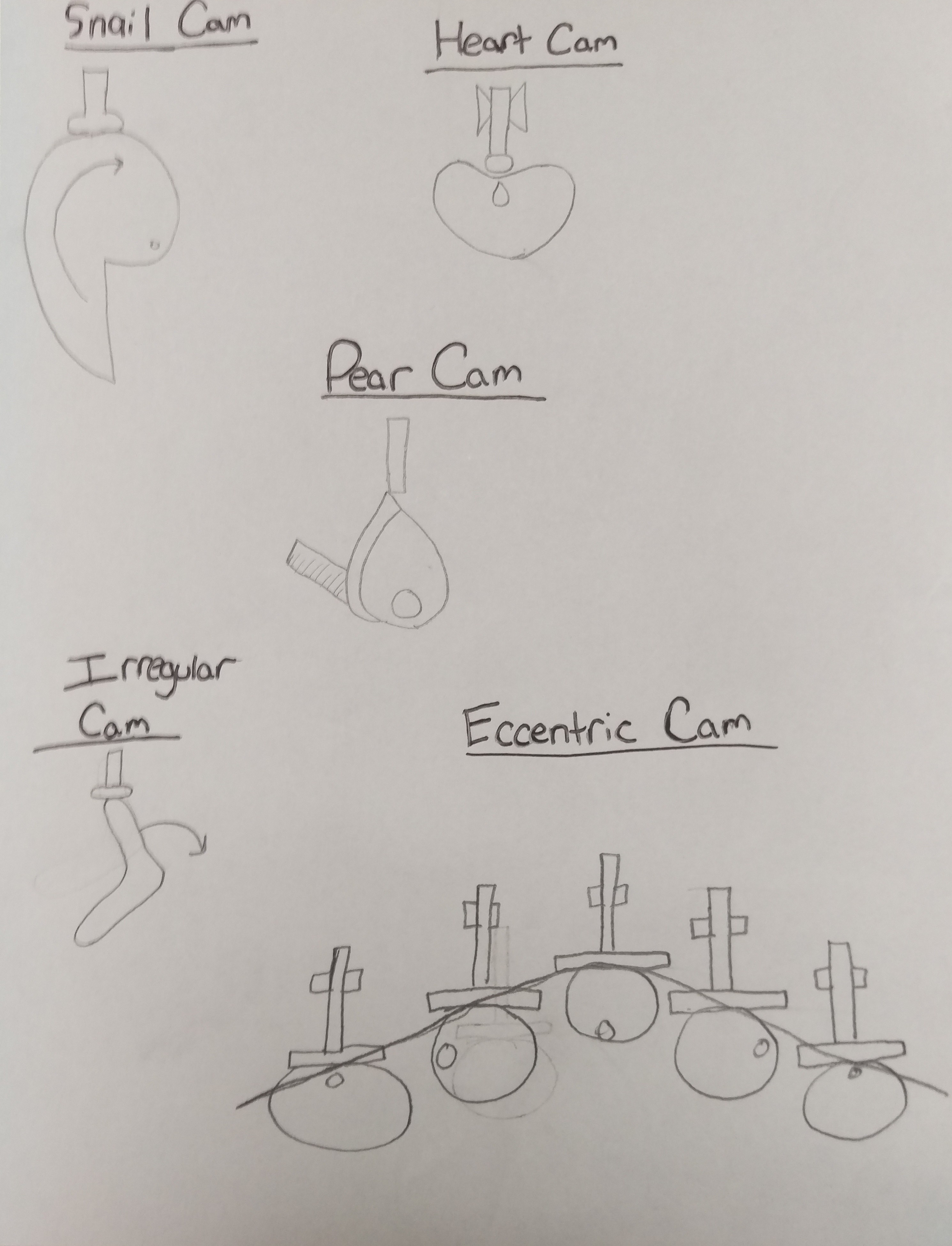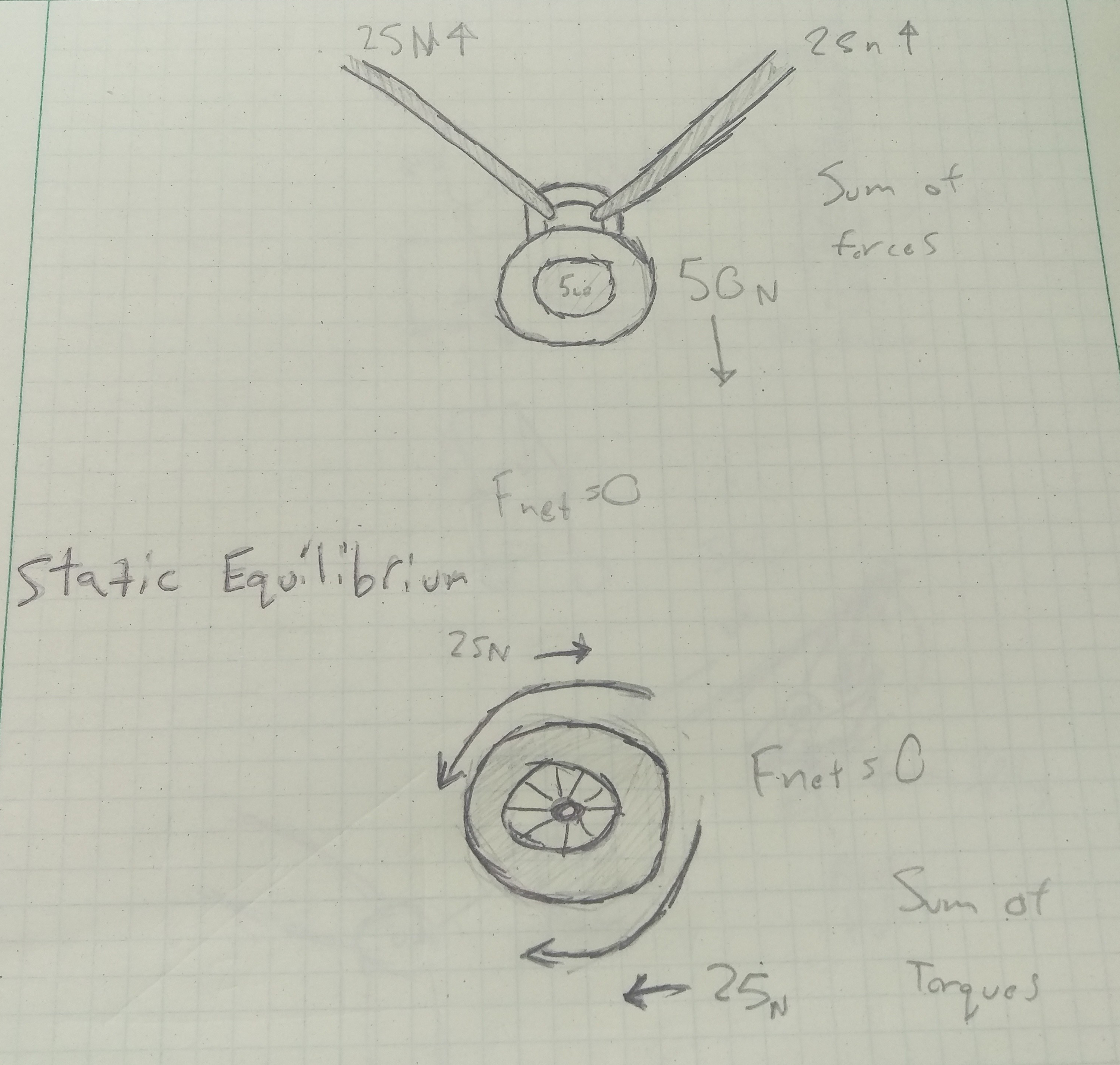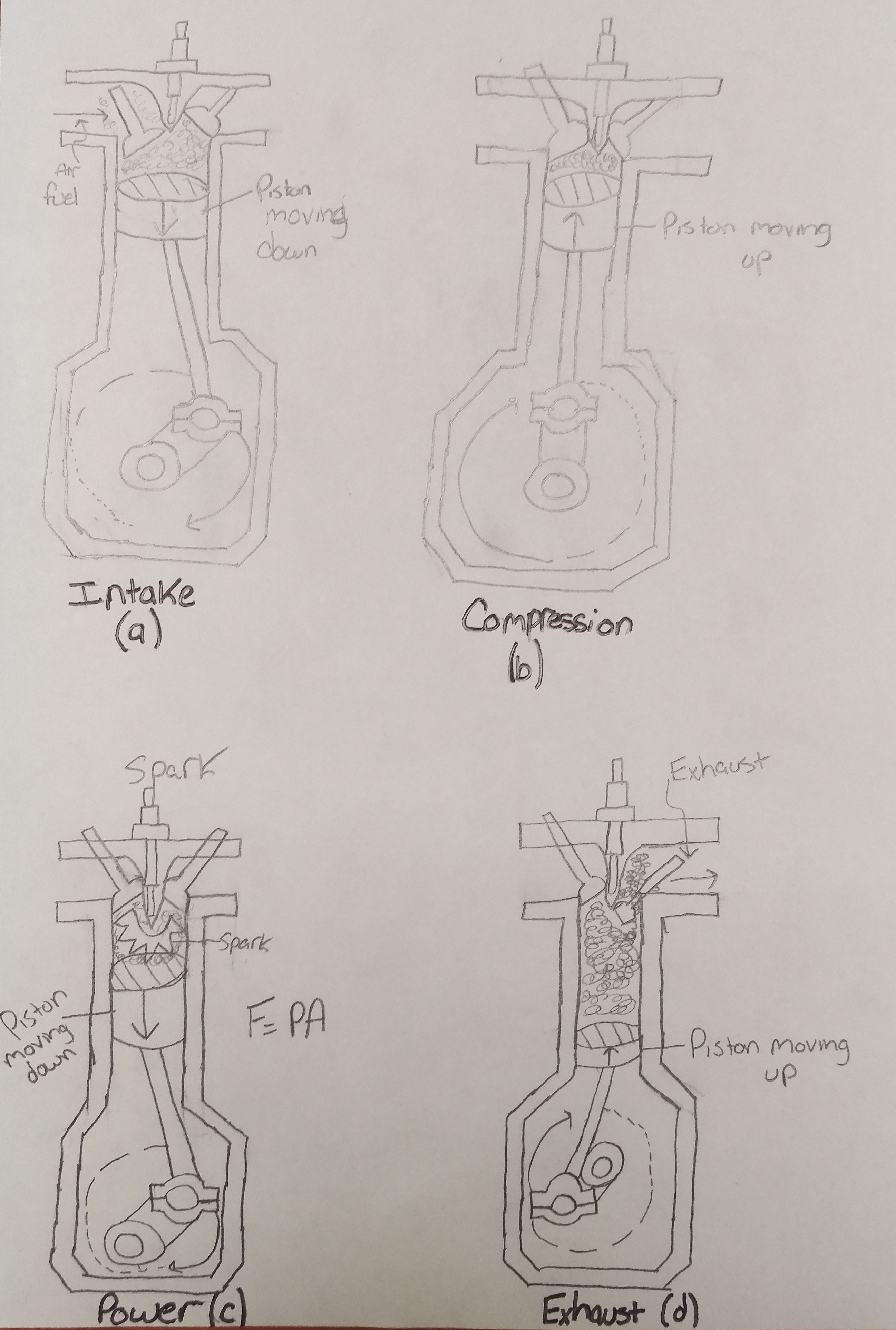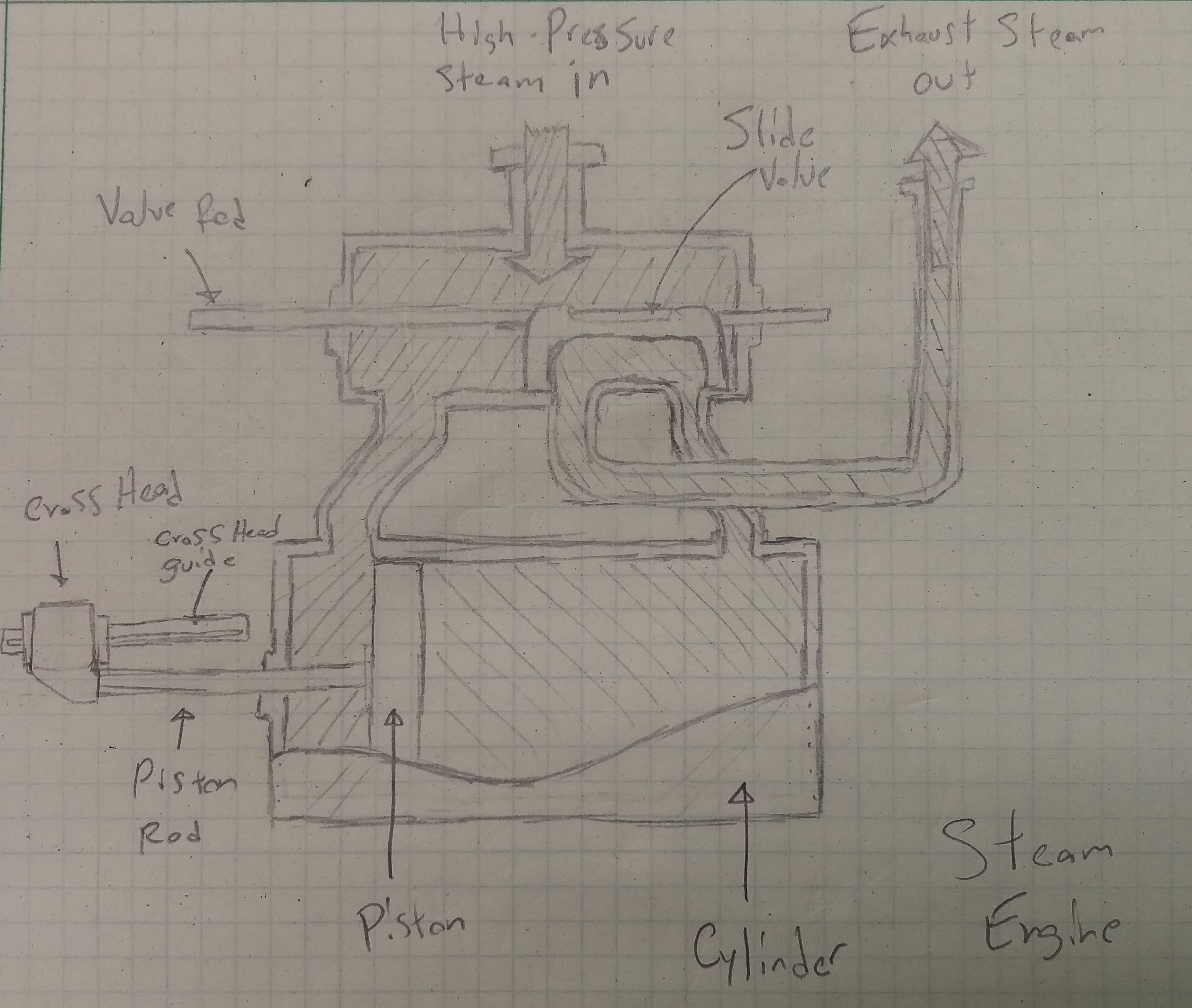Machines
Mechanical Design Notes
As a part of our mechanical design unit, we conducted research on a series of topics regarding different manifestations of machines. My notes are compiled below.
What is a machine?
A machine is a construct that is used to transmit or alter the action of power, force, motion, or torque to do useful work.
Why do we use them?
Humans use machines to maximize the amount of productive work done with the least amount of effort put in.
All machines are not created equal
One of the simplest machines is the lever. Below I will explain the different types of levers and the advantages different types have over another.
A force multiplier increases the force applied.
A distance multiplier increases the distance traveled
by the applied force.
Mechanical advantage, or MA is what engineers use to define the efficiency of a machine. MA is the ratio of the force produced by a machine to the force applied to it, used in assessing the performance of a machine.

Class 1 lever:
What you put in is what you get out.
MA = 1
Class 2 lever:
You get more bang for your buck.
MA > 1
Class 3 lever:
You have to work harder to increase how much you get out. Less bang for your buck.
MA < 1
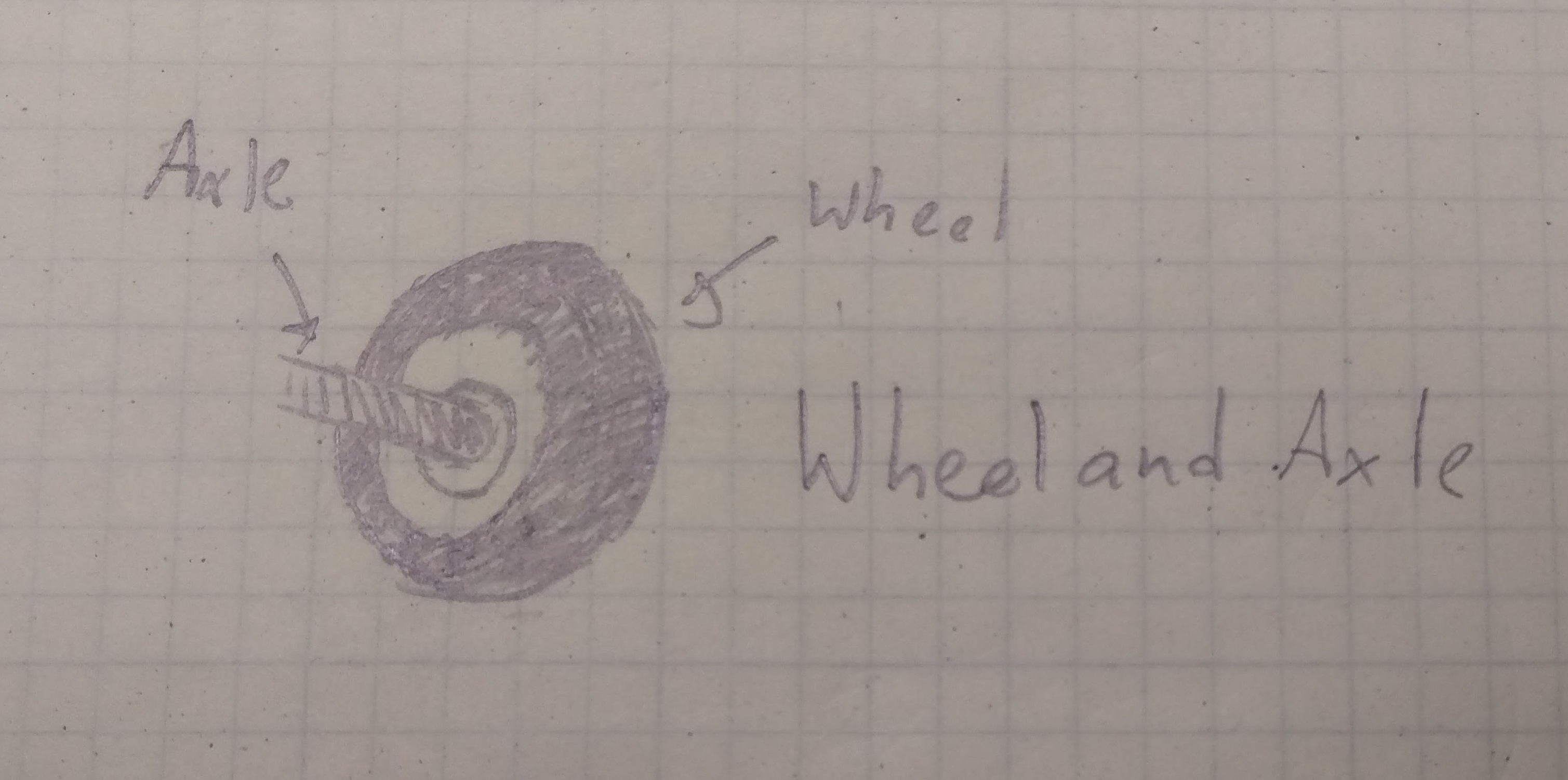
The wheel and axle is a second class lever.
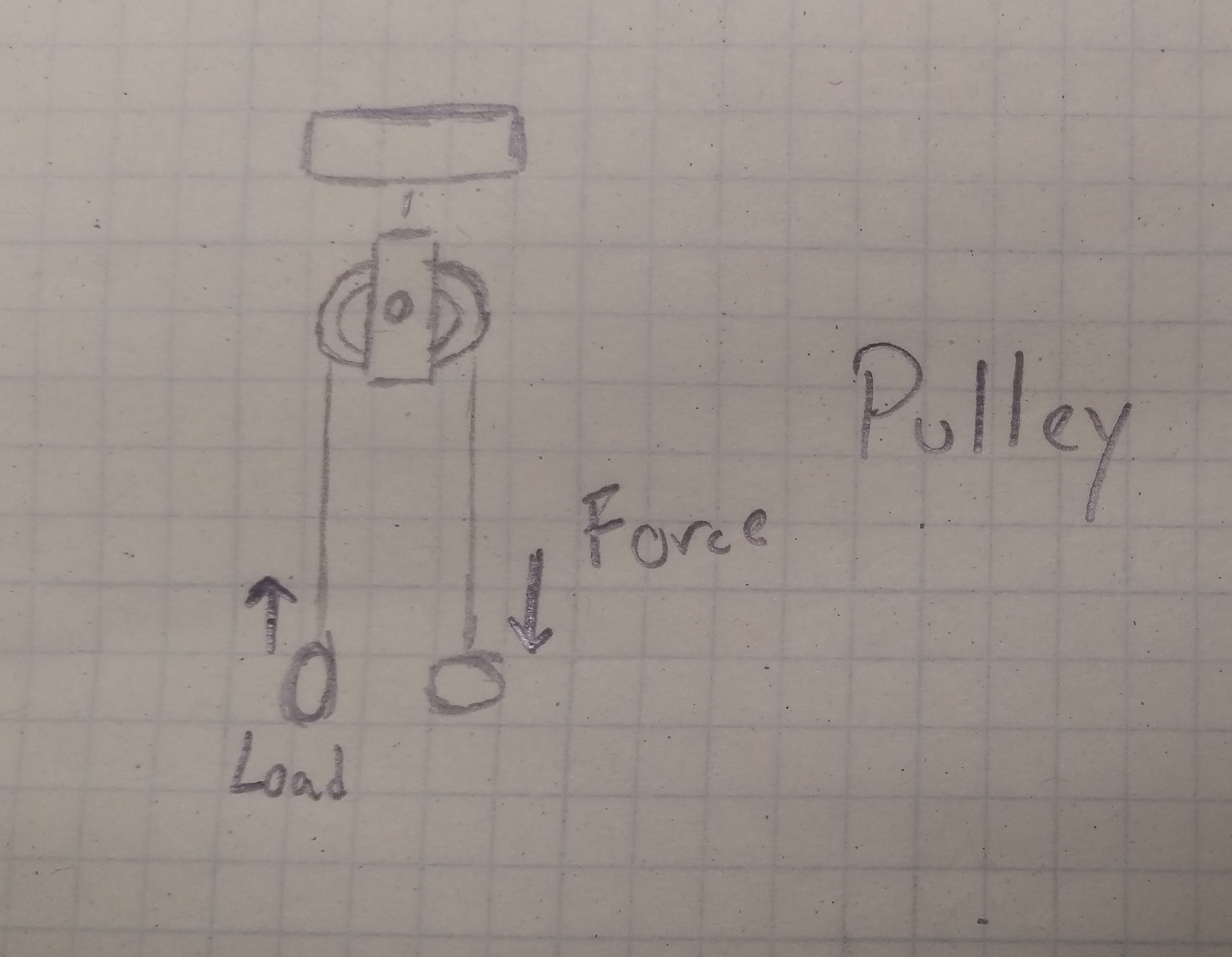
The pulley is first class lever.
Newton’s First Law
Inertia - An object at rest will remain at rest, and an object in motion will remain in motion unless acted upon by an outside force.
Newton’s Second Law
Fnet = m*a - The acceleration of an object as produced by a net force is directly proportional to the magnitude of the net force, in the same direction as the net force, and inversely proportional to the mass of the object.
Newton’s Third Law
Action/Reaction - every action has an equal and opposite reaction.
Conservation of Energy
Conservation of energy is a principle which states that energy cannot be created or destroyed, but can be altered from one form of energy to another.
Conservation of Energy Efficiency
How well does a machine that is transferring energy do its job without losing energy.
Below are sketches of concepts we learned in our mechanical design unit:

